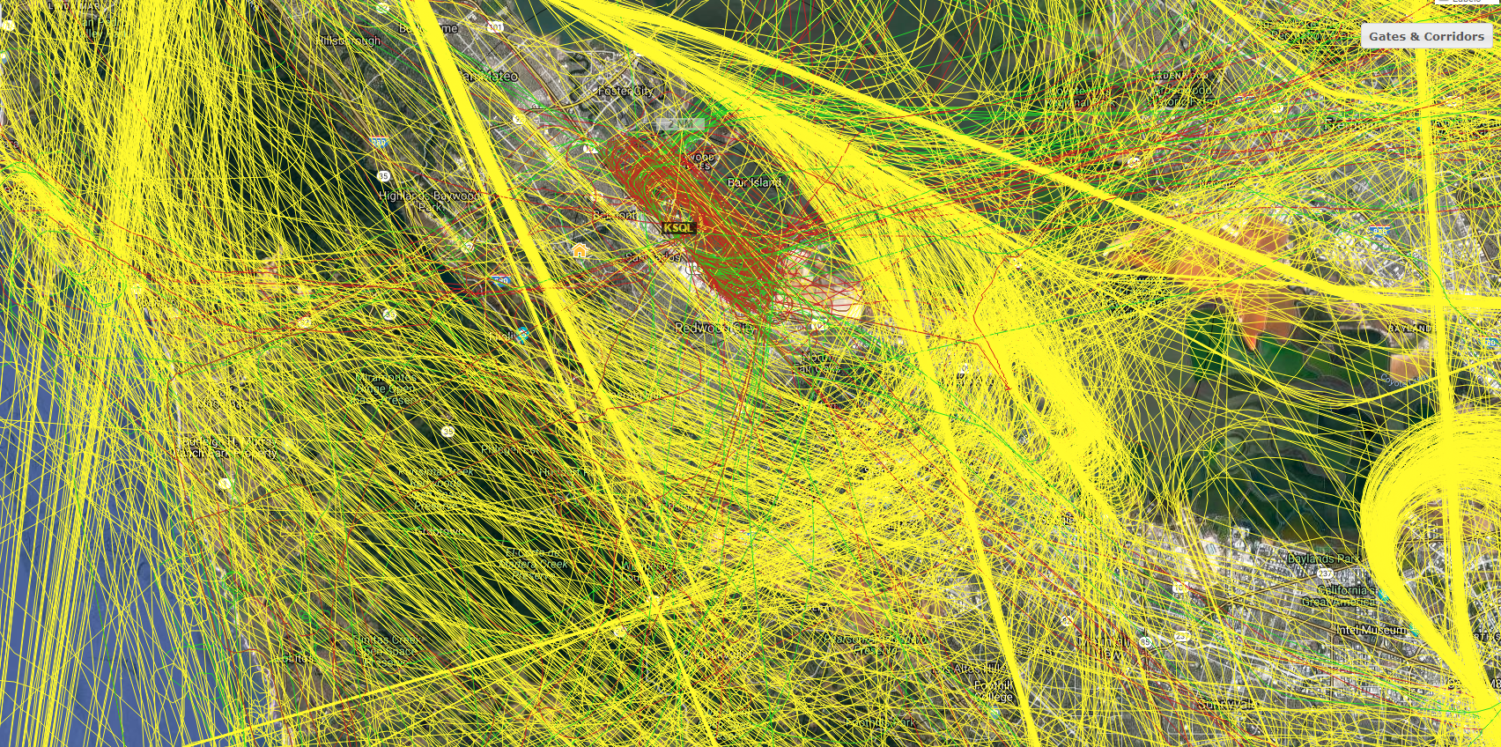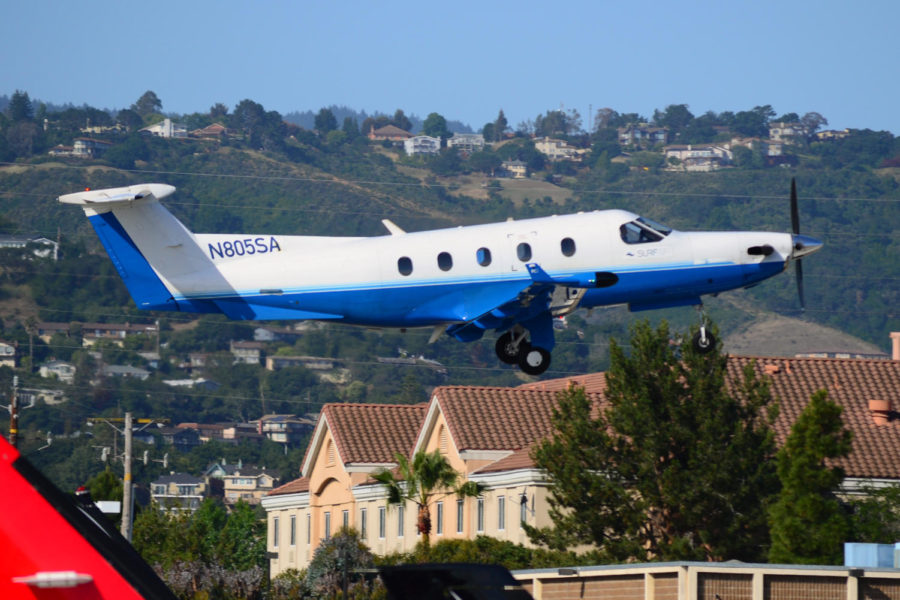Surf Air operations have returned to San Carlos Airport after a months-long hiatus from the area, according to San Mateo County Airports Assistant Manager Chris Peter.
The company is locally notorious for its heavy contributions to the airport’s noise pollution, frequently operating its relatively larger Pilatus PC–12s in the peninsula. Surf Air’s fleet of turboprop aircraft, contrasting with the county-managed airport’s more common traffic of smaller piston-engine airplanes, are stronger, larger, and much noisier.
County officials report that Surf Air’s last landing at San Carlos was on June 29 of this year.
Their temporary absence to the regular location for the airline was in connection to their process of transitioning to their new aircraft operator Advanced Aviation, based in Hawthorne, California.
Surf Air replaced their previous partners, Encompass Aviation, following a back-and-forth legal dispute over failures to pay the air carrier, among other serious accusations.
A report by the Los Angeles Times said, “two federal tax liens were placed against Surf Air in May, one for $1.9 million and another for about $434,000. San Mateo County also filed a tax lien against Surf Air in 2017 for $125,000.”
Local residents have submitted complaints, voiced concerns, and even staged protests denouncing Surf Air’s noise and disturbance troubles.
According to Peter, statistics run by the county show an 85 percent reduction in flights correlate with an approximately 20 percent reduction in the number of complaints received.
But, he points out, the quantity of complaints alone does not show the number of individual people. A considerable number of complaints they receive come from a handful of addresses. For this month to date, the administration has received 315 complaints from 37 distinct individuals or addresses.
Peter also confirms that ever since Surf Air began using San Carlos in June of 2013, noise complaints have increased considerably in relation.
While he admits the existence of concerns regarding the airline’s activities, in actuality the county airports administrator also says he does not believe Surf Air is the single most significant factor of San Carlos Airport-related noise. Surf Air accounted for less than five percent of San Carlos Airport’s total operations this calendar year, the county official reported.
“If Surf Air was the largest contributor of ‘noise pollution,’ I would expect to see more than a 20 percent drop in complaints when they stopped operating. The Airport had and continues to receive complaints about other aircraft landing and departing,” Peter said.
Regarding airport-related noise in the general area, Assistant Airport Manager Peter additionally noted San Carlos represented 8.6 percent, or 104,106, of the 1,213,556 total operations at among six Bay Area airports.

Sophomore and Redwood Shores resident Ashwin Singh had been glad the airline was absent from the local airport.
“I feel like it’s gonna be bothersome and Redwood Shores will be noisy again. I hate how I’m just sitting in my room and I just hear [sounds, like there are] barrels rolling around, it really is bothersome,” Singh said.
A resident of San Carlos, Cathy Campbell, has a very different viewpoint. While she can clearly hear it, she doesn’t mind the noise from overhead aircraft.
“I just don’t focus [on it], I’m not thinking about it,” Campbell said. “I live on Elm Street. We wouldn’t pay attention to [the noise] if we wanted to move there. The planes and trains were already there.”
The airline’s model bases on a monthly membership that offers unlimited flights between locations in California that Surf Air serves. Similar operations by Surf Air exist in Texas and Europe.
Flights operate in smaller, commonly noncommercial airports to guarantee customers swift departures and arrivals without the hassles of commercial airports, like lines and security checks, the company advertises.
Surf Air declined to comment on whether they are taking any steps to address public concern regarding noise issues caused by their aircraft.


